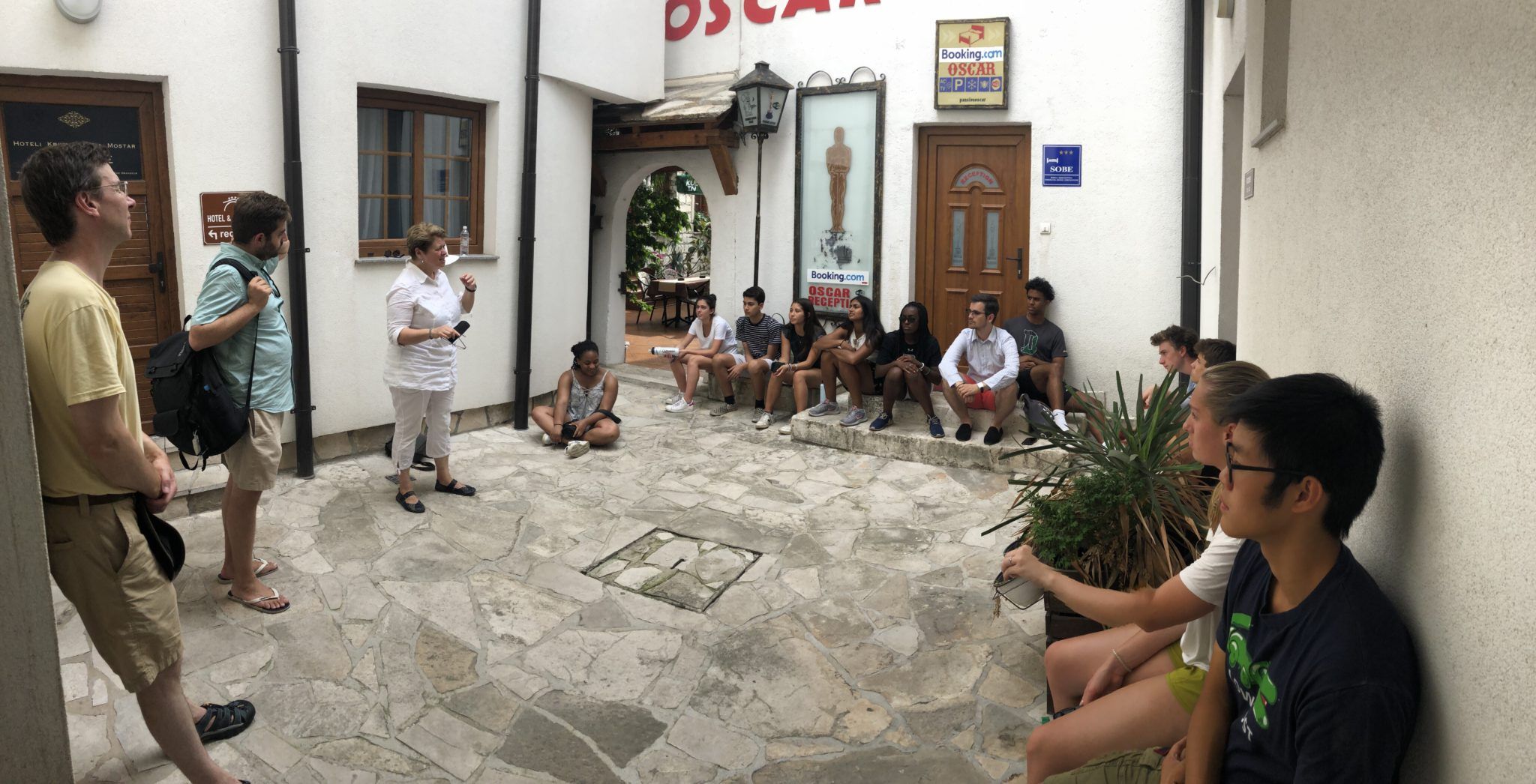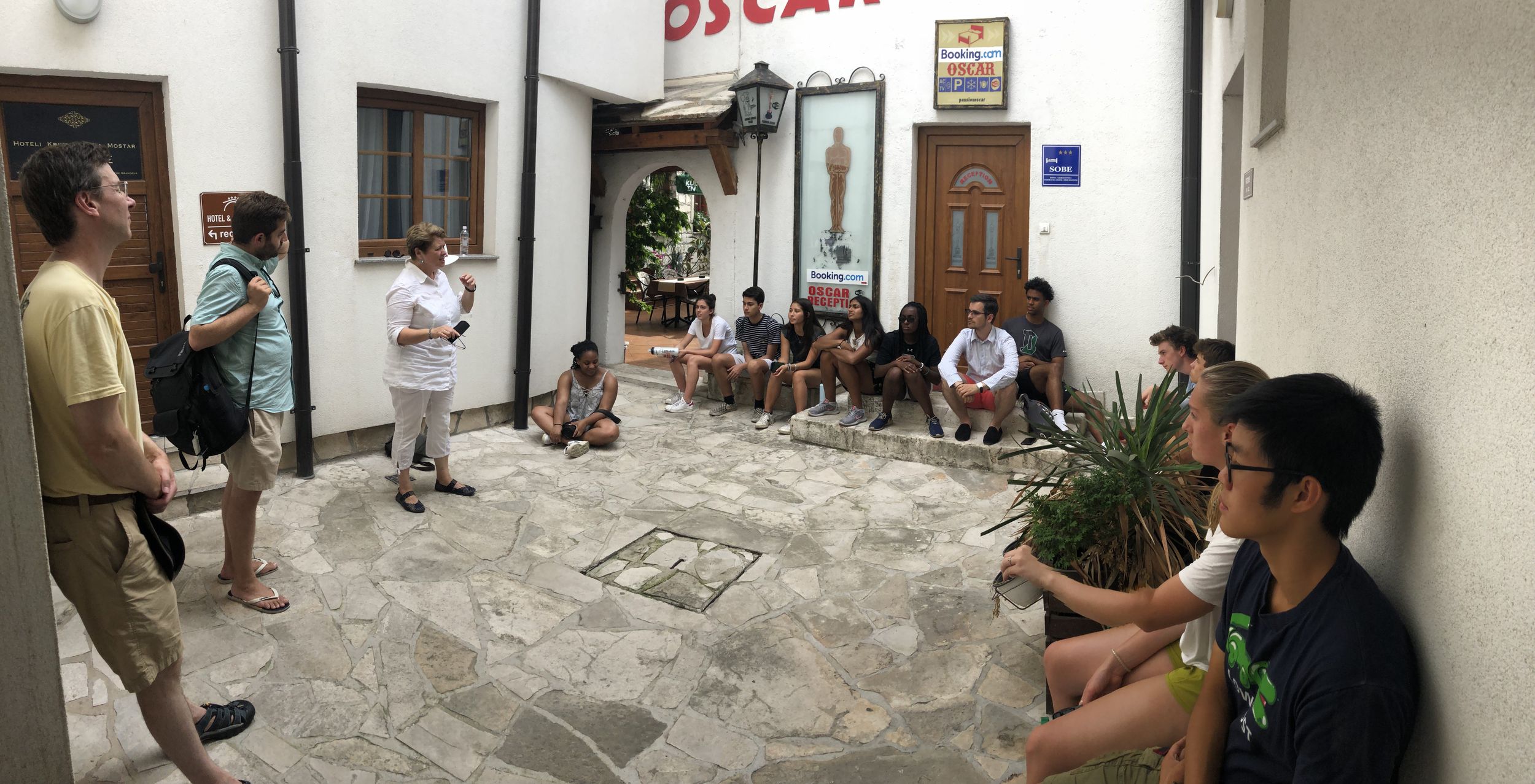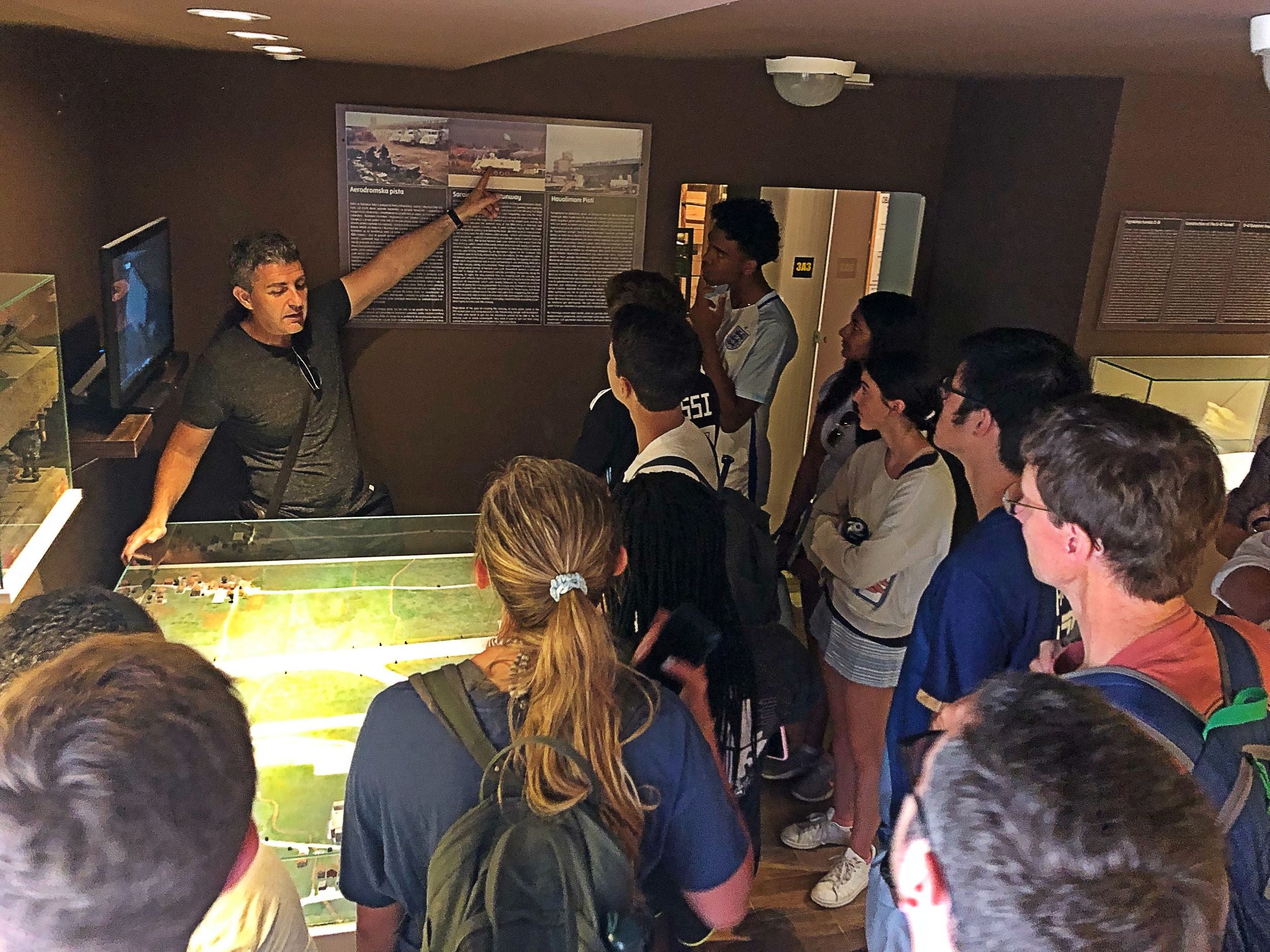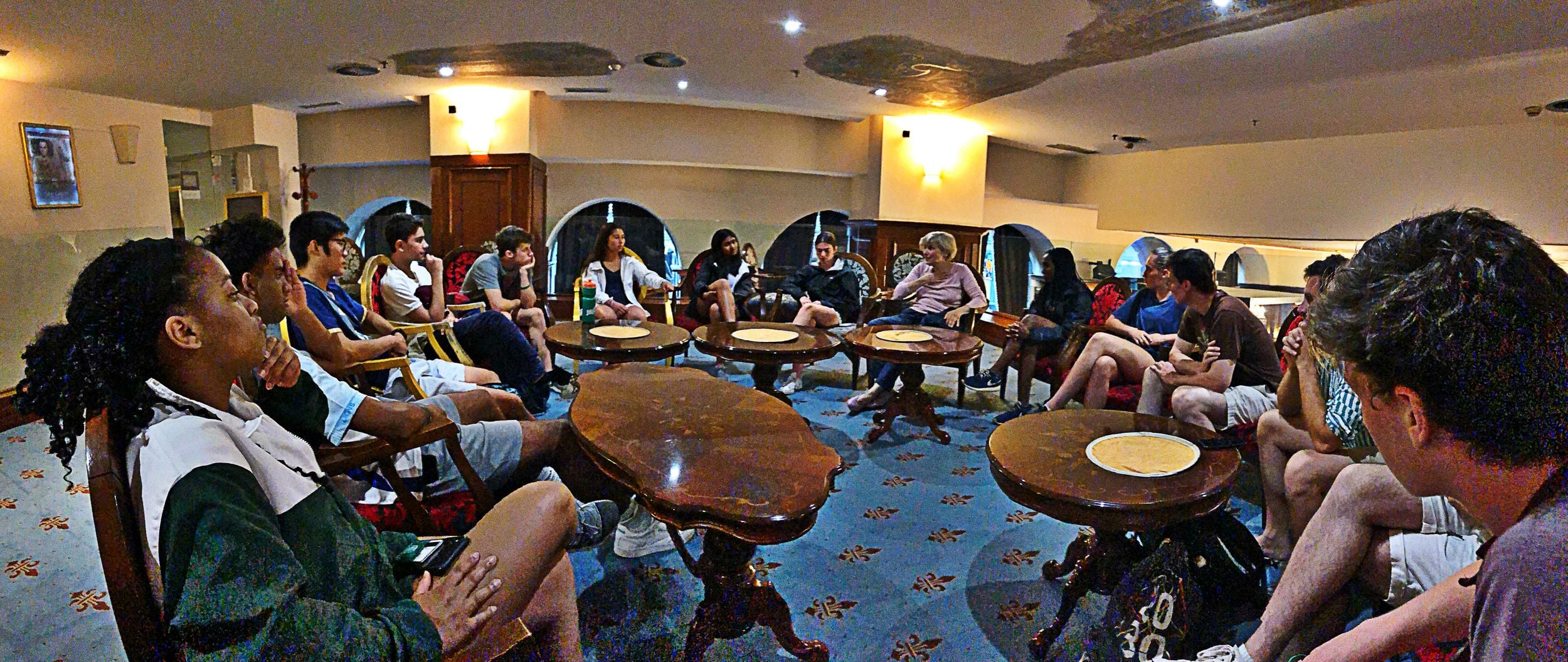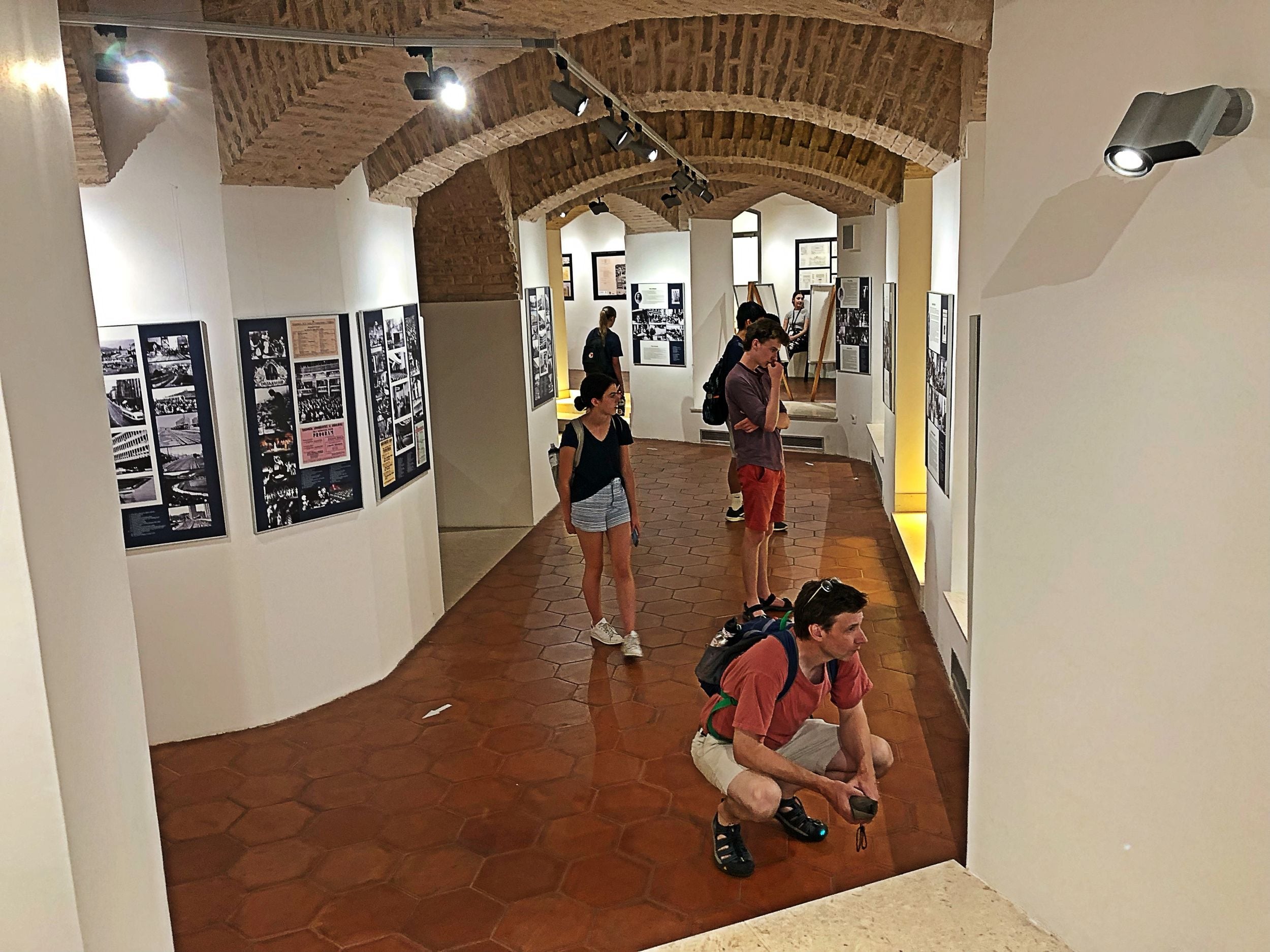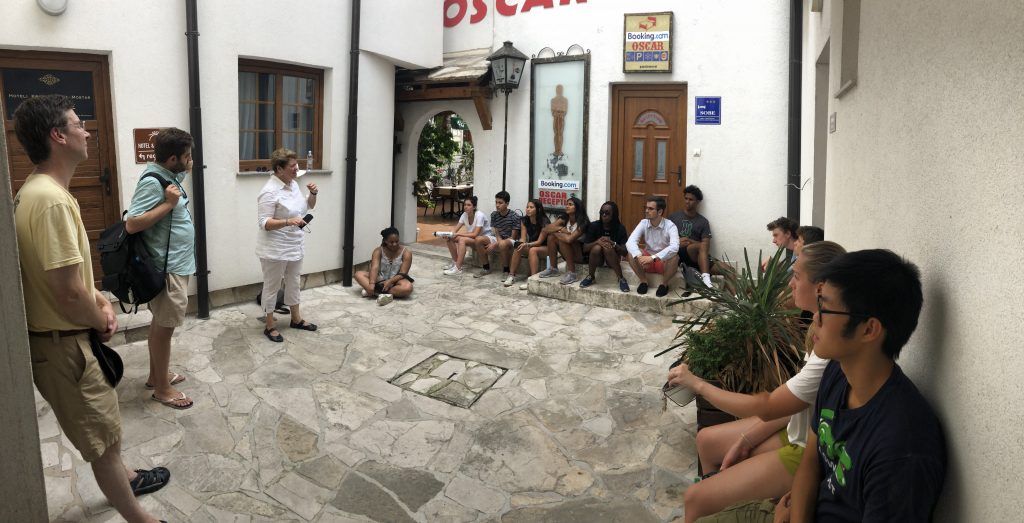Adrian Yao ’20 reflects on the conflicting views between Bosnian Muslims and Bosnian Serbs.
This was our second day in Sarajevo, the capital of Bosnia and Herzegovina (BIH), and we spent the morning at a Bosnian café-garden (aided by Turkish coffee and tea) discussing and reflecting upon our experiences so far. One of the most prominent questions that came up was the international community’s role during the genocide of Bosnian Muslims, and its continuing influence today in shaping the Balkan region.
Unlike Croatia and Serbia who have fairly homogeneous populations in terms of ethnicity, Bosnia and Herzegovina’s (BIH) ethnic make-up consists of about 45% Bosniaks, 36% Serbs, and 15% Croatians. Interestingly, one’s ethnicity essentially determines their religion, so the religious make-up in BIH is very similar to its ethnic make-up with Bosniaks predominantly Muslim, Serbs predominantly Orthodox Catholic, and the Croats predominantly Roman Catholic. This religious diversity is a dividing factor between the ethnicities in the Balkans, with presidents and politicians appealing to ethnic and religious differences to fuel nationalism. The dangers of excessive nationalism are perhaps best manifested in the genocide of Bosnian Muslims in east BIH from 1992 to 1995.
To give some context, BIH declared their independence and separated from Yugoslavia in order to become their own country in 1992. There was one big problem. Significant chunks of BIH had a Serbian majority population, so Yugoslavia’s (which was controlled by Serbs) argument was that independence was unfair for the Serbs living in BIH who wanted to remain in Yugoslavia. A civil war broke out and many Bosnian Muslims living in Eastern Bosnia (bordering Serbia) had to escape their homes due to persecution by Bosnian Serbs who wanted their area to be ethnically “clean.” As a result, the United Nations declared six “safe havens,” where refugees could come and be shielded by UN troops. Srebrenica, protected by a battalion of Dutch troops, was one of those “safe havens.” The evidence thereafter is murky but my interpretation of the events is that in order to protect their own lives, the Dutch troops turned over most of the refugees to the enemy. The Bosnian Serb troops divided men and boys from women and children. In July of 1995, the Bosnian Serb troops killed over 8,000 men and boys, hiding their remains in mass graves throughout the region.
In the afternoon, we met with Hasan Nuhanovic, a former interpreter for the Dutch UN troops in Srebrenica and survivor of the genocide. After the war, he sued the Dutch government for not upholding their responsibilities and the court ruled in his favor. He said that Dutch witnesses lied blatantly in court about their involvement in handing over refugees to the enemies. Even today, he says, nations like the US and the Netherlands still deny that they acted too slowly when they had strong evidence that the Bosnian Serbs were committing ethnic cleansing and genocide.
Perhaps even more worrisome is how history about this time period is interpreted differently by Bosnian Muslims and Bosnian Serbs. BIH essentially has two governments, one governed by Croats and Bosnians and the other by Serbs, and the stories they tell about the genocide are different. In fact, we met young liberal Serbians who worked for an NGO that tried to stop discrimination, and, surprisingly they insisted that genocide never happened. I fear that the Bosnian genocide could become a forgotten part of history. If the anguish of survivors remains unrecognized and the lessons of these events unabsorbed, history will repeat itself. Ultimately, Hassan thinks that change can only happen if BIH joins NATO and the EU. However, he admits that it is difficult because the Bosnian government is half controlled by Bosnian Serbs who follow the wishes of the Serbian government, still harboring raw memories of the NATO bombings of Belgrade in 1999. Hassan says that change within the government will be difficult, and that the international governments and NGOs must do more to bring justice and reconciliation to this divided region. After a long day, we rested up in our hotel to recharge for the next day.
